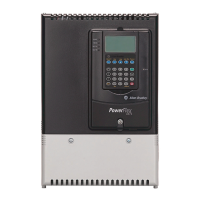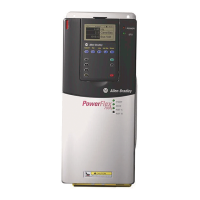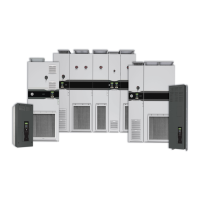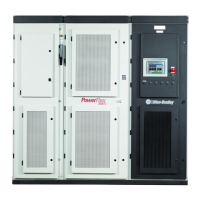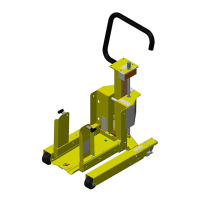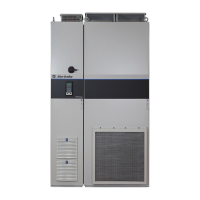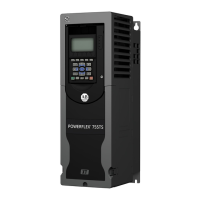158 Rockwell Automation Publication 520-UM001K-EN-E - August 2021
Chapter 4 Troubleshooting
Fault Indication
Manually Clearing Faults
Automatically Clearing Faults
Auto Restart (Reset/Run)
The Auto Restart feature provides the ability for the drive to automatically
perform a fault reset followed by a start attempt without user or application
intervention. This allows remote or “unattended” operation. Only certain
faults are allowed to be reset. Certain faults (Type 2) that indicate possible
drive component malfunction are not resettable. Fault types are listed in the
table
Fault Types
on page 157. See Fault Descriptions on page 159 for more
information.
Condition Display
Drive is indicating a fault.
The integral LCD display provides visual notification of a fault condition by
displaying the following.
• Flashing fault number
• Flashing fault indicator (LED)
Press the Esc key to regain control of the display.
Step Key(s)
1. Press Esc to acknowledge the fault. The fault information will be removed so that
you can use the integral keypad.
Access b007
[Fault 1 Code] to view the most recent fault information.
2. Address the condition that caused the fault.
The cause must be corrected before the fault can be cleared. See Fault Types,
Descriptions, and Actions on page 159.
3. After corrective action has been taken, clear the fault by one of these methods.
• Press Stop if P045 [Stop Mode] is set to a value between “0” and “3”.
• Cycle drive power.
•Set A551 [Fault Clear] to 1 “Reset Fault” or 2 “Clear Buffer”.
• Cycle digital input if t062
, t063, t065...t068 [DigIn TermBlk xx] is set to
13 “Clear Fault”.
Option/Step
Clear a Type 1 fault and restart the drive.
1. Set A541
[Auto Rstrt Tries] to a value other than “0”.
2. Set A542
[Auto Rstrt Delay] to a value other than “0”.
Clear an OverVoltage, UnderVoltage or Heatsink OvrTmp fault
without restarting the drive.
1. Set A541
[Auto Rstrt Tries] to a value other than “0”.
2. Set A542
[Auto Rstrt Delay] to “0”.
ATTENTION: Equipment damage and/or personal injury may result if these
parameters are used in an inappropriate application. Do not use this
function without considering applicable local, national and international
codes, standards, regulations or industry guidelines.
FAULT
F
W
D
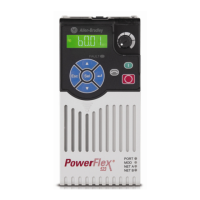
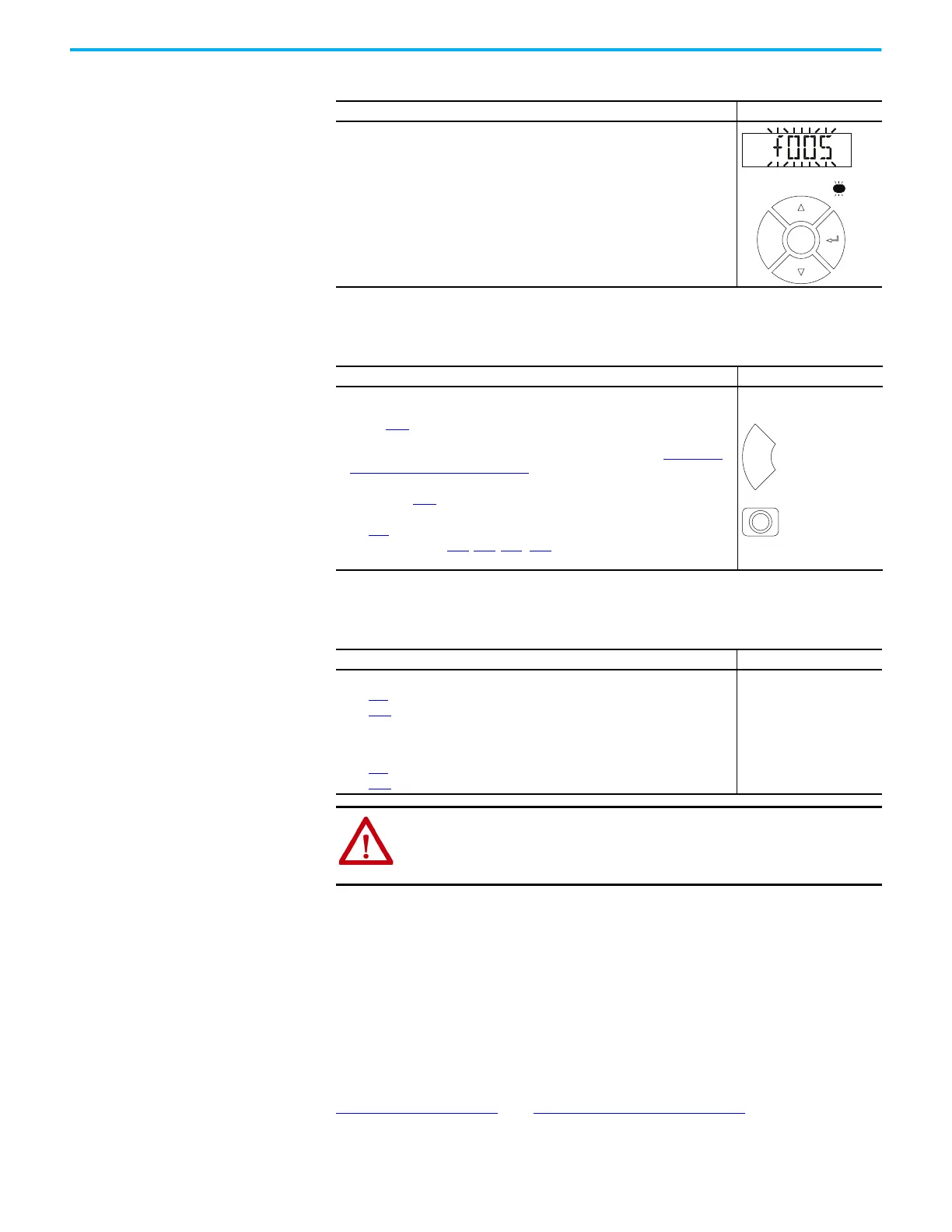